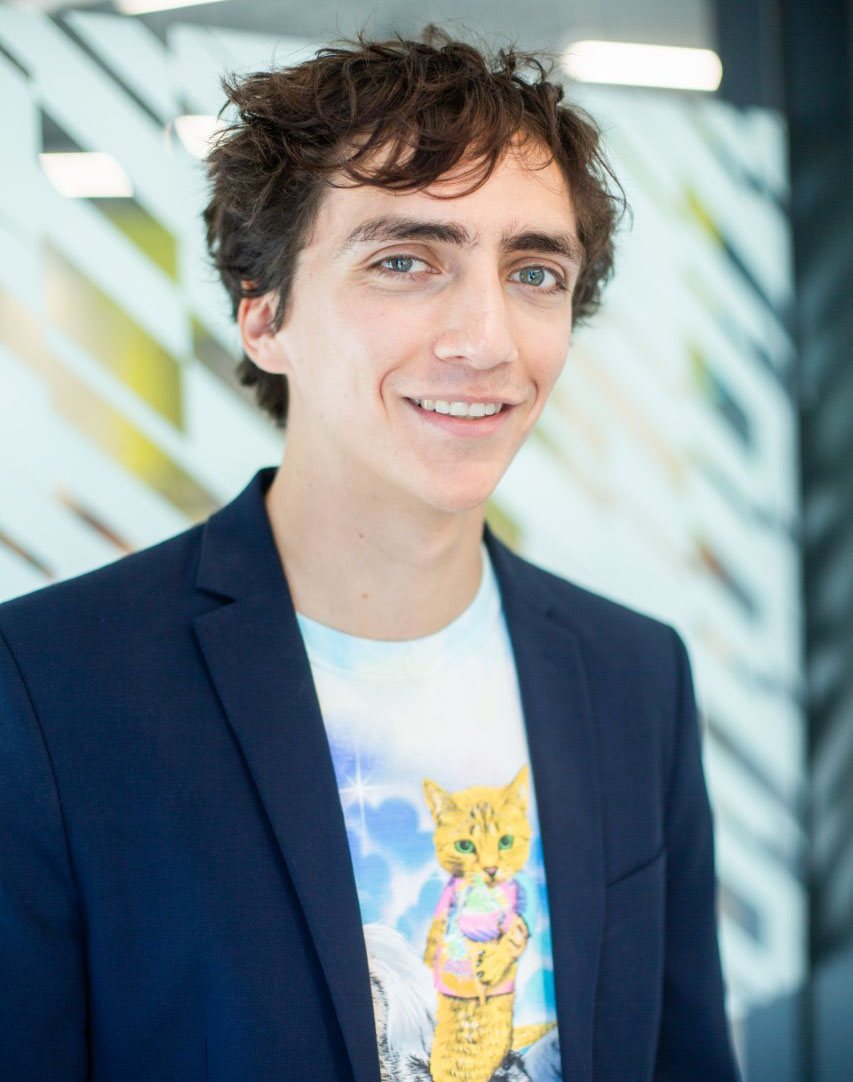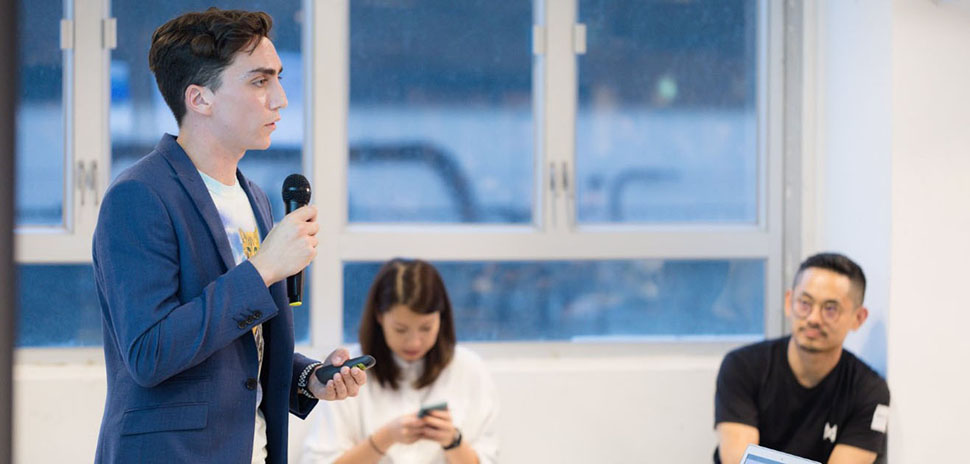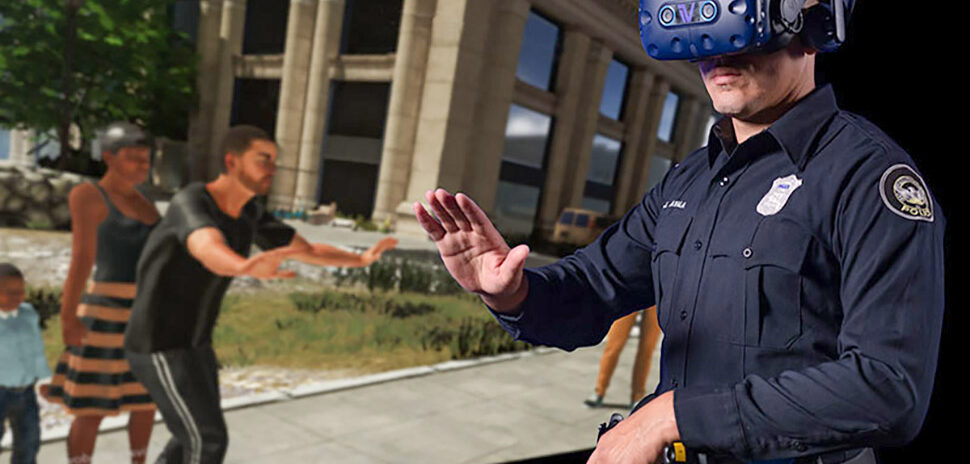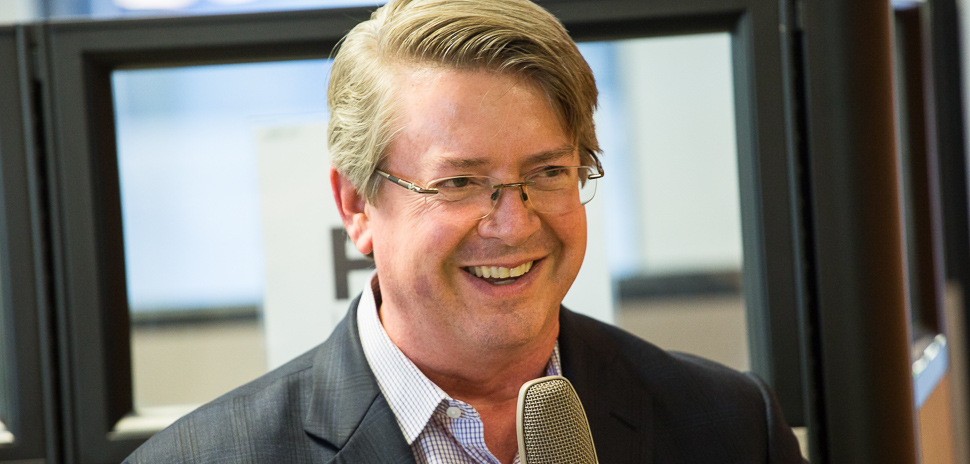University of Texas at Dallas computer science senior Pablo Peillard, founder of a startup for decentralized ledger technology (DLT), has been selected to participate in the spring cohort of LaunchPad Lift, a program from Blackstone LaunchPad powered by Techstars at UT Dallas.
He is the second UT Dallas student to be chosen for the program. Veena Somareddy, co-founder and CTO of NeuroRehabVR and a former graduate student of the UTD School of Arts, Technology, and Emerging Communication, was a participant in 2018. The spring 2020 cohort kicked off on Jan. 27.
The LaunchPad Lift program is a virtual cohort-based program where student entrepreneurs get individualized support and long-term mentorship to get their ventures moving forward faster.
Peillard’s startup, Hashing Systems, is an integrated development platform for innovators and enterprises to create and manage projects using decentralized ledger technologies. The intent is to make it easier to build on distributed ledger technologies with less coding. Hashing Systems is backed by Dallas-based enterprise distributed ledger company Hedera Hashgraph, and Hong Kong-based Animoca Brands and Mind Fund.
Meet Pablo Peillard

Pablo Peillard [Photo: Courtesy UTD]
Peillard is an experienced young entrepreneur and said he’s always been a maker. He first came to UTD in 2013 because of its emphasis on research and its renowned computer science program.
“Finding a community that cares about developing the technology behind products was a priority for me,” Peillard, a native of Chile and graduate of R.L. Turner High School in Carrollton, said. “I’m very grateful that we have these opportunities today where we’re able to go somewhere and talk to someone about our ideas. That’s something you can sometimes do online, but it’s very different when you can do it face to face.”
At UT Dallas, Peillard has helped run several projects, co-founding ThreadAI and later founding Hashing Systems. He’s participated in the Big Idea Competition, CometX, and the UTDesign Startup Challenge, and also taken academic course, and joined organizations such as the blockchain club and Makerspace.
Looking to the future, Peillard said he pondered how to mentor students at the university after he earns his degree in May from the Erik Jonsson School of Engineering and Computer Science.
“Pablo has consistently worked hard to bring his vision to life and has been very dedicated in his pursuit of launching a successful business venture,” Dresden Goldberg, director of programs and operations at the Institute for Innovation and Entrepreneurship at UT Dallas, said in a statement. “We are thrilled to work with him in our programs and look forward to supporting his continued growth as a student and a founder.”
In 2017, we told you about Peillard and fellow UTD computer science student Raviteja Lingineni leading a team to a first-place finish in the 30-hour Smart Cities Hackathon at the Consumer Electronics Show in Las Vegas. They won for their Alexa-based tool that maps safety on the streets in cities.
Peillard said being in the LaunchPad Lift program will be a boost for his startup, as it will help him find other companies with similar issues, along with advisers who share relevant experience.
“The type of technology we’re building is still new, so the services that can be provided are still developing. There are a lot of great ideas out there, but they still need to be proved in the market,” he said. “For example, when the cloud started out, companies didn’t immediately take it seriously until there were a few test cases. The same can be said for the video game boom and extremely abrupt bust in 1983-85. What’s key for us and for any new technology is to legitimize the changes we’re offering to the market.”
The ins and outs of LaunchPad Lift
Student teams from LaunchPad campus programs were chosen by a panel of Techstars and Blackstone executives.
Founded in 2006 in Colorado, Techstars is a U.S. seed accelerator. As of 2019, it has accepted more than 1,600 companies into its programs with a combined market capitalization of $18.2 billion. Techstars accepts less than 1 percent of its of applicants.
In the Lift program, students are matched with Techstars mentors based on their specific business and needs, and they participate in biweekly Q&A calls with Techstars subject matter experts. During the calls, mentors share their knowledge on a wide variety of entrepreneurial topics such as fundraising, business structure, pricing models, sales, marketing, and more.
LaunchPad Lift includes peer networking and education in fundraising, growing sales, making executive hires, and formalizing the supply chain. Participants also compete in front of potential investors and Techstars accelerator managing directors for up to $50,000, which is provided by the Blackstone Charitable Foundation.
“The Lift program provides a unique opportunity for some of our most successful LaunchPad student entrepreneurs to gain access to unparalleled mentorship from the Blackstone and Techstars networks, which really sets our student founders up for future success,” Amy Stursberg, executive director of the Blackstone Charitable Foundation, said in a statement.
Other spring cohort startups operate in various industries, including financial services, transportation, manufacturing, and more. Participants also come from other universities like Texas A&M, UT Austin, Syracuse, the University of Southern California, and the University of California at Berkeley.
![]()
Get on the list.
Dallas Innovates, every day.
Sign up to keep your eye on what’s new and next in Dallas-Fort Worth, every day.

































































